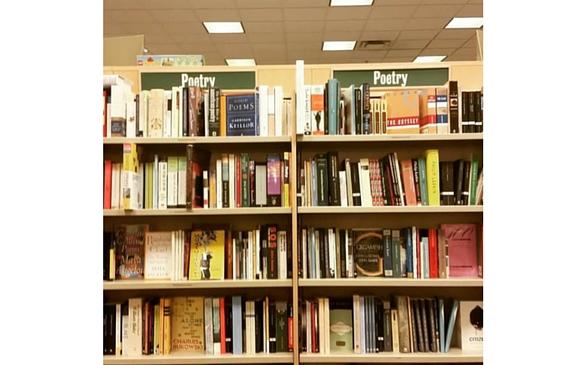By: Savanny Savath, Staff Writer
Four men shuffle into the cramped smoking section of an all-night diner. There is an odd smell lurking somewhere. Hours have passed and the table is littered with drafts of paper, half-filled coffee cups and ashtrays with burnt down cigarettes. Fresh smoke wavers around the men’s faces, fleeting like the art of poetry, like their drafts of poems already dead and done at 4:00 in the morning.
“We very much thought we were the Beat generation. We stayed up in cafes. We would talk about everything. [Someone would] bring in something. You would read it to a friend. It was all bad, knockoff Kerouac—mine was always bad, knockoff Kerouac. The other guy was bad, knockoff Tom Robbins and the [next] guy was just bad,” says Patrick Whitfill, professor of English and published poet.
To the less poetically-inclined, poetry does not exist. It is an elusive trail of gray smoke or ground coffee beans usually found in cafés where poets, despite the laptop or notepad in front of them, stare off into what they call “the Universe.”
Fellow poet and Professor of English Deno Trakas experiences the same rite of passage.
“I went through a strange period in my life a couple of years ago where I would go to Panera every morning at 6:30. I would sit there for an hour and write haikus. I would be present for the evolving of the day. Every day was a little different. In that hour you usually see the beginning of the day. I could look out the window and sort of see a cemetery, and in that cemetery my grandparents are buried. That was kind of an odd thing. It was a somber kind of scene. I got into the habit of writing what I call ‘You’ haiku. The haikus were about a ‘You,’ a presence that I called ‘You.’ Sometimes it is God. Sometimes it is nature,” says Trakas.
A true poet while talking about oneself also casually recites quotes and lines from other poets and poems. The more obscure or classic the quote or line, the wiser they are as a poet.
“[Going] back to Wordsworth, ‘it is the spontaneous overflow of powerful feelings recollected in tranquility.’ Prose doesn’t have to do that. It’s not that it doesn’t do that. Poetry to me doesn’t have to be in lines, doesn’t have to rhyme, but [poetry] is about that overflow of powerful feelings that occurred when you were in an event, when that thing happened, when the moment you had your heart broken, when you fell in love, somebody died or you realized you were going to die someday,” says Whitfill.
“The main difference between poetry and prose is line break. In a poem, the poet chooses where to break the line, chooses how long the line will be, why to break it, why to stop here and go to the next line instead of going to the end of the page. In prose, the line is determined by the publisher. James Dickey would say, ‘Poetry is at the center. It is the center of the wheel. It is everything.’ It is the best way to use language in any form of language. Poetry is the highest standard of human expression. It is the most beautiful way of using our language,” says Trakas. By sheer coincidence, sophomore Kassie Franck talks about feelings too in relation to poetry. She describes feelings as the ‘crazy.’
“Poetry is a person’s crazy showing. We all have our individual crazy. I feel like poetry—no matter what poem you’re talking about—you can see a little bit of the poet’s crazy in there,” says Franck. “No matter what style they’re doing, a little bit of the crazy is going to come out. Since we all got that crazy, who are we to judge someone else’s crazy?”






























